Established in 2016, the IUPAP Young Scientist Prize in the field of Magnetism is awarded every year to a young scientist for theoretical or experimental work in fundamental or applied magnetism. In 2021 the IUPAP renamed its Young Scientist Prizes across all commissions to Early Career Scientist Prizes. This change of name reflects that the prizes are not intended for “young” people in terms of chronological age but in terms of their career stage.
The nominated candidate must not have completed more than eight years of research after the doctorate by the nomination deadline, with allowance for career interruptions such as military service, parental leave and other substantial breaks. The award consists of a certificate, a medal and a monetary award of 1,000 CHF. The awardee will be invited to present his or her results at the next ICM conference (13-18 June 2027, San Juan, Puerto Rico).
The awardee will be selected by a committee composed of members of the IUPAP Commission on Magnetism (C9), together with past recipients of the Magnetism Award and Néel Medal. Nominations may be made by anyone interested in the field of magnetism. Nominations for women and under-represented minority candidates are particularly encouraged.
The nomination package should include:
- Completed nomination form (in Word or PDF).
- Curriculum vitae of the candidate, which must not exceed two pages in length.
- List of six of the candidate’s most significant publications, including citation information, not to exceed one page.
- Commentary on the publications, which makes the case for the award, not to exceed two pages.
- Up to three letters of support, up to a maximum of two pages each.
The documents must be collected into a single pdf file called Surname_ECSP.pdf, where Surname is the candidate’s last name. Please keep the file size under 10MB. Nominations not conforming to these instructions cannot be accepted.
The nomination should be sent by the nominator by January 30, 2026 to the C9 Secretary Olivier FRUCHART by e-mail at [email protected], and copying the C9 Chair Shinji YUASA at [email protected].

Dr. Dongwook Go, Forschungszentrum Jülich and Johannes Gutenberg University Mainz
“For pioneering theoretical studies of the emerging field of orbitronics, which concerns the generation and transport of electron orbital angular momentum in solids.”
Dr. Dongwook Go is a researcher at Forschungszentrum Jülich and Johannes Gutenberg University Mainz. He received his PhD in Physics from POSTECH (Pohang University of Science and Technology) with a thesis “Orbital Dynamics and Transport in Spintronics” under the supervision of Prof. Hyun-Woo Lee. After a year as a postdoctoral fellow in the same group, he has been a postdoctoral fellow in the group of Prof. Yuriy Mokrousov since 2020. His research explores the fundamental physics of orbitronics, focusing on the generation, transport, and interaction of orbital angular momentum, as well as the prediction of novel materials that host exotic orbitronic phenomena.
Dr. Masato Sagawa, NDFEB Corporation and Daido Steel Co. Ltd, Japan
“For pioneering contributions to the invention and development of rare-earth-iron-boron high-performance permanent magnets.”
Established in 1991, the IUPAP Magnetism Award is made in recognition of outstanding contributions to fundamental and applied magnetism. It is presented every three years at the International Conference on Magnetism (ICM). The Néel Medal is awarded together with the Magnetism Award, since 2003, sponsored by CNRS and Institut Néel. A monetary award for the winner(s) is generously sponsored by Elsevier. This year’s award will be presented at the 2024 ICM, to be held in Bologna, Italy, during June 30-July 5, 2024.
The award committee consists of members of the IUPAP Commission on Magnetism, together with past recipients of the Magnetism Award and Néel Medal. All members of the magnetism community were invited to make nominations.
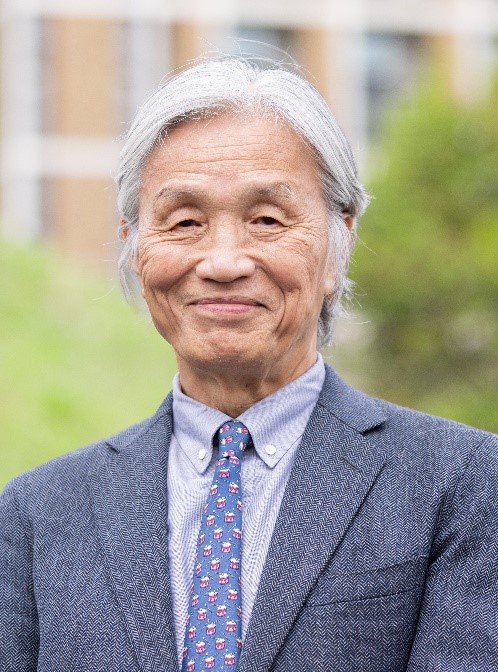
Masato Sagawa
“For pioneering contributions to the invention and development of rare-earth-iron-boron high-performance permanent magnets.”
Dr. Sagawa is the founder and president of NDFEB Corporation and an adviser to Daido Steel. He is best known as the inventor of the world’s strongest permanent magnet, the Nd-Fe-B sintered magnet. After the invention, he contributed to the mass production of these magnets, while contributing to basic research by creating single crystals of the main phase of the magnet. He received numerous awards and prizes including Osaka Science Prize (1984), APS James C. McGroddy Prize for New Materials (1986), Asahi Prize (1990), Honda Memorial Prize (2003), the Japan Prize (2012), NIMS Award (2018), IEEE Medal for Environmental and Safety Technologies (2022), the Queen Elizabeth Prize for Engineering (2022) and Honda Prize (2023). At the age of 80, he is still highly active in the field of permanent magnets.
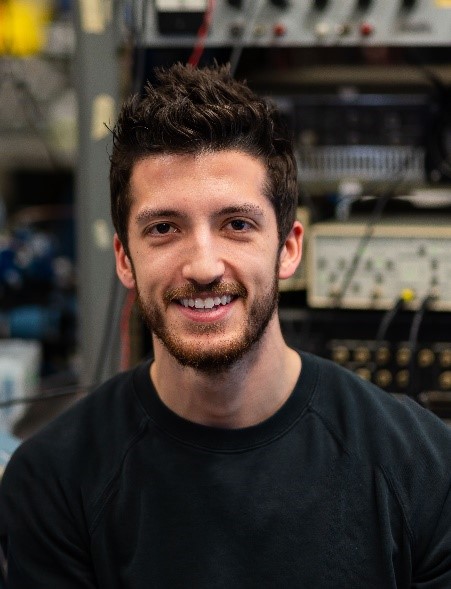
Dr. Lucas Caretta, Brown University
“For outstanding contributions to the understanding of ultrafast, current-driven magnetic domain wall motion and relativistic magnetization dynamics.”
Dr. Lucas Caretta is an Assistant Professor in the School of Engineering at Brown University. Caretta completed his Ph.D. in Materials Science and Engineering at the Massachusetts Institute of Technology as a National Science Foundation Graduate Research Fellow and a GEM Consortium Fellow. Following his graduate work, he studied as a Ford Foundation Postdoctoral Fellow and University of California (UC) President’s Postdoctoral Fellow at UC Berkeley. From atoms to devices, Caretta’s research focuses on discovering, designing, and developing novel materials physics in complex oxide thin films, with a focus on ferroic systems.

Dr. Alannah Hallas, University of British Columbia
“For outstanding contributions to the discovery of magnetic quantum materials through advanced synthesis methods.”
Dr. Alannah Hallas is an Assistant Professor of Physics at the University of British Columbia (UBC) and a Principal Investigator at the Stewart Blusson Quantum Matter Institute. She completed her BSc in Chemistry at the University of Winnipeg in 2011 and her PhD in Physics at McMaster University in 2017. She worked as a postdoctoral fellow at Rice University before starting her faculty position at UBC in 2019. Alannah’s research centers on the design and discovery of new magnetic quantum materials, whose quantum properties she studies using x-rays, neutrons, and muons. Dr. Hallas is a CIFAR Azrieli Global Scholar and a Sloan Research Fellow.
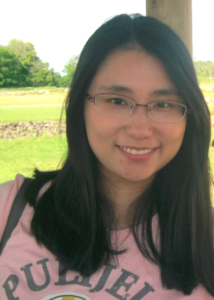
Chunhui Du
“For fundamental contributions to the understanding, detection and control of spin dynamics and spin currents in magnetic oxides.”
Dr. Chunhui Du is an Assistant Professor of Physics at the University of California, San Diego (UCSD). She received her B.S. in physics from East China Normal University in 2010, and Ph.D. in Physics from the Ohio State University in 2015. She worked as a postdoctoral fellow at Harvard University before joining UCSD in March, 2019. Du’s research focuses on developing state-of-the-art quantum metrology to investigate spin transport and dynamic behaviors in emergent condensed matter systems at the nanoscale. Du is a recipient of the National Science Foundation Career Award, the Air Force Young Investigator Award, and the Harold and Suzy Ticho Endowed Faculty Fellowship (UCSD).
The IUPAP Commission on Magnetism (C9) regrets to announce that the 22nd International Conference on Magnetism (ICM 2022) in Shanghai, China, originally scheduled for July 2021 and later postponed to July 2022, is now cancelled due to the still ongoing COVID-19 pandemic.
This difficult decision was reached in close consultation with the Organizing Committee of ICM 2022. It was clear that the pandemic prevention measures in China in the foreseeable future would not permit the organization of a major international conference of this magnitude, either in person or in other formats.
The Awards Session of the ICM 2022 will be moved to its satellite meeting, the 24th International Colloquium on Magnetic Films and Surfaces (ICMFS-2022), to be held during July 10-15, 2022 in Okinawa, Japan: https://icmfs2022.jp/ Recent winners of the IUPAP Magnetism Award and Néel Medal as well as the IUPAP Young Scientist Prize in Magnetism (from now on renamed to IUPAP Early Career Scientist Prize in Magnetism) will be honored.
We extend our sincere gratitude to the entire ICM 2022 Organizing Committee, headed by Prof. Xiaofeng Jin from Fudan University, for their dedication and extensive preparation work done thus far.
The next regularly scheduled ICM conference will be held in 2024 in Bologna, Italy.
Please stay safe and healthy!
The IUPAP Commission on Magnetism is pleased to announce that the 2021 IUPAP Magnetism Award and Néel Medal will be awarded to:
Prof. Agnès Barthélémy, University Paris-Saclay / Unité Mixte de Physique CNRS-Thales, France, and Prof. Nicola Spaldin, ETH Zürich, Switzerland
“For pioneering contributions to the fundamental and applied science of magnetic and ferroelectric materials, particularly multiferroics”.
Established in 1991, the IUPAP Magnetism Award is made in recognition of outstanding contributions to fundamental and applied magnetism. It is presented every three years at the International Conference on Magnetism (ICM). The Néel Medal is awarded together with the Magnetism Award, since 2003, sponsored by CNRS and Institut Néel. A monetary award for the winner(s) is generously sponsored by Elsevier. This year’s award will be presented at the 2022 ICM, to be held in Shanghai, China, during July 3-8, 2022.
The award committee consists of members of the IUPAP Commission on Magnetism, together with past recipients of the Magnetism Award and Néel Medal. All members of the magnetism community were invited to make nominations.
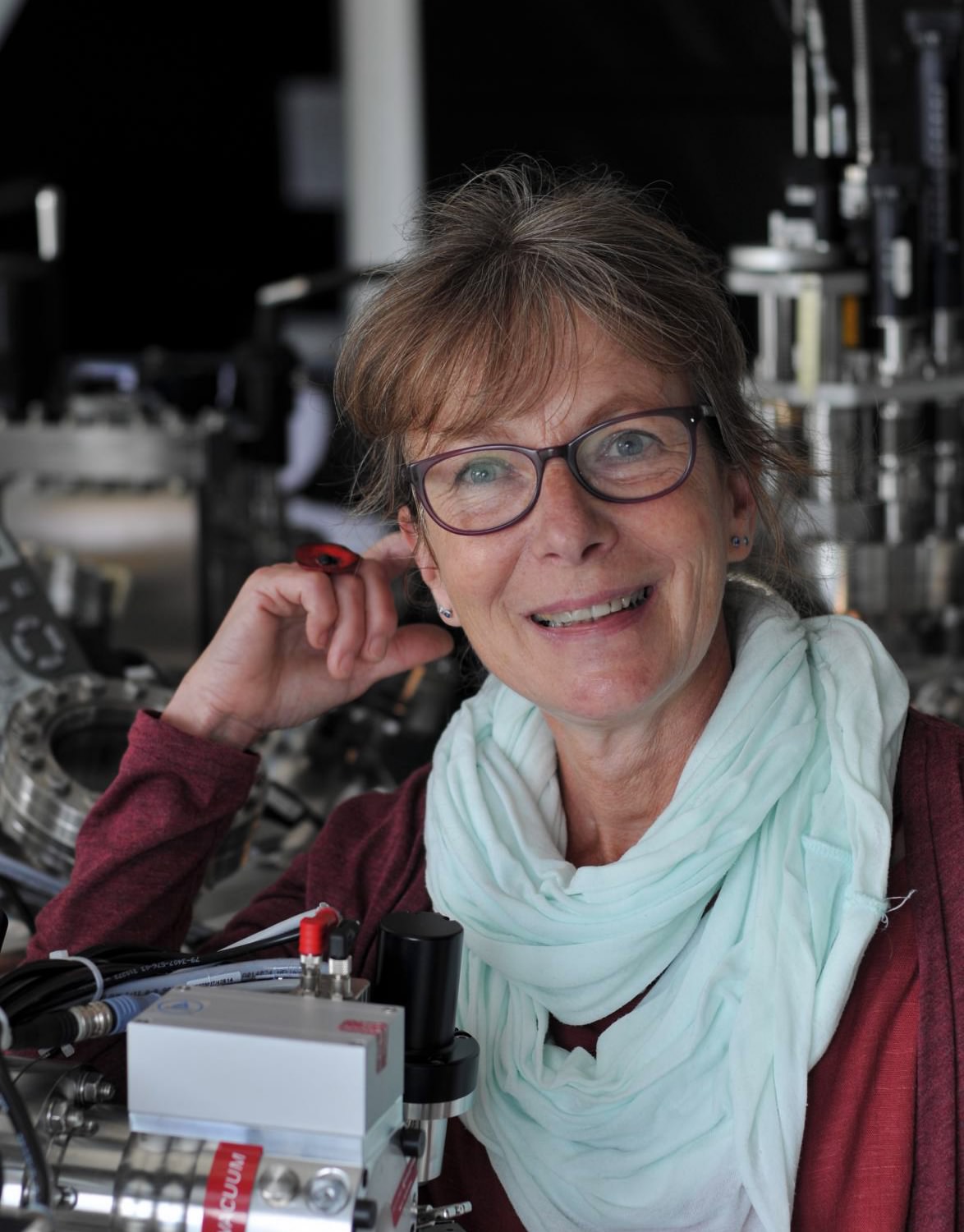
Agnès Barthélémy
Dr. Barthélémy is a Professor at University Paris-Saclay and a researcher at Unité Mixte de Physique CNRS-Thales. After a PhD thesis on giant magnetoresistance and perpendicular anisotropy in magnetic metallic multilayers, she reoriented her research in 1998 and developed at Unité Mixte de Physique CNRS/Thales a new direction of research on “multifunctional oxides”. This encompassed researches on magnetic tunnel junctions with record of tunnel magnetoresistance using half metallic manganite electrodes, ferroelectric tunnel junctions with demonstration of their potential for memory or neuromorphic computing, high mobility two-dimensional electron gases at oxide interfaces, multiferroic materials and heterostructures opening the way to electrical control of magnetic state. She was awarded the Louis Ancel prize of the French Physical Society in 2008, the Silver medal of CNRS in 2010, the Nikola Tesla prize of the Petrović Njegoš foundation in 2015 and the Lazare Carnot prize of the French Academy of Sciences in 2017.
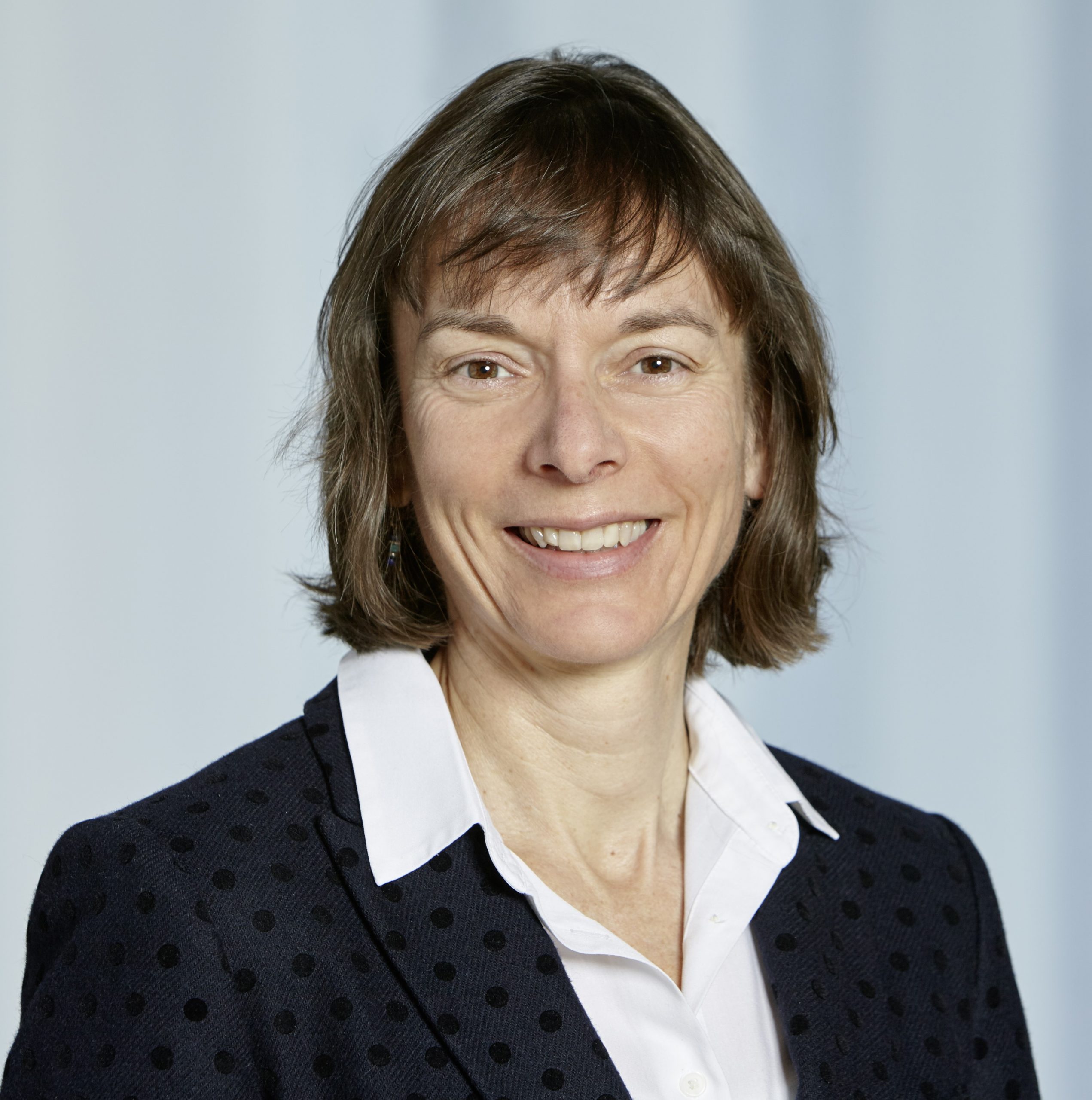
Nicola Spaldin
Dr. Spaldin is a Professor of Materials Theory at ETH Zürich and a Fellow of the Royal Society. She is best known for her development of multiferroic materials, which combine simultaneous ferromagnetism and ferroelectricity, for which she received the APS McGroddy Prize for New Materials, the Koerber European Science Prize, the L’Oréal-UNESCO For Women in Science Award and the Swiss Science Prize Marcel Benoist. She is a passionate science educator, coordinator of her department’s curriculum revision project “The Materials Scientist 2030, Who is She?”, and holder of the ETH Golden Owl Award for excellence in teaching. When not trying to make a room-temperature superconductor, she can be found playing her clarinet, or skiing or climbing in the Alps.
The IUPAP Commission on Magnetism is pleased to announce that the recipient of the 2021 IUPAP Young Scientist Prize in the field of Magnetism is:
Dr. Can Onur Avci, Institute of Materials Science of Barcelona, Spain
“For outstanding contributions to understand current-induced spin-orbit torques and electrical control of the magnetization in magnetic insulators, and for the discovery of unidirectional spin Hall magnetoresistance.”
Established in 2016, the IUPAP Young Scientist Prize in the field of Magnetism is awarded every year to a young scientist for theoretical or experimental work in fields of fundamental or applied magnetism. This annual award replaces the two prior awards for theoretical/computational work and for experimental work established in 2006, which were awarded every three years at the International Conference on Magnetism (ICM). The award committee consists of members of the IUPAP Commission on Magnetism, together with past recipients of the IUPAP Magnetism Award and Néel Medal. All members of the magnetism community were invited to make nominations.
The award will be presented to Dr. Avci at the 2022 ICM, to be held in Shanghai, China, during July 3-8, 2022.
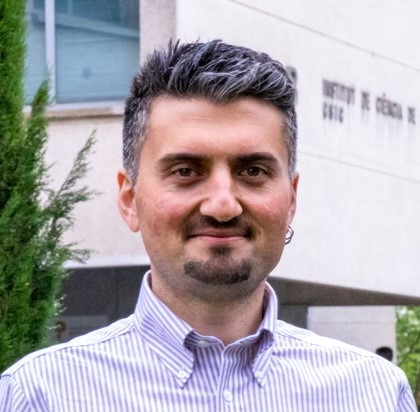
Can Onur Avci
Dr. Can Onur Avci is a principal investigator at the Institute of Materials Science of Barcelona (ICMAB-CSIC) since February 2021. He received his Ph.D. degree from ETH Zürich in 2015 and was awarded the ETH Medal for outstanding doctoral thesis. He was a postdoctoral researcher at the Massachusetts Institute of Technology between 2016-2018 and at ETH Zürich between 2018 and 2021. He recently received an ERC Starting Grant to develop spintronics devices based on magnetic insulators. His research focuses on spin-orbit-driven phenomena and spin currents in low dimensional systems, electrical control of magnetization, and spintronic memory and logic devices.




